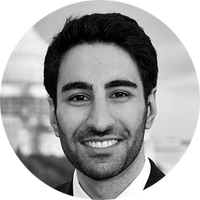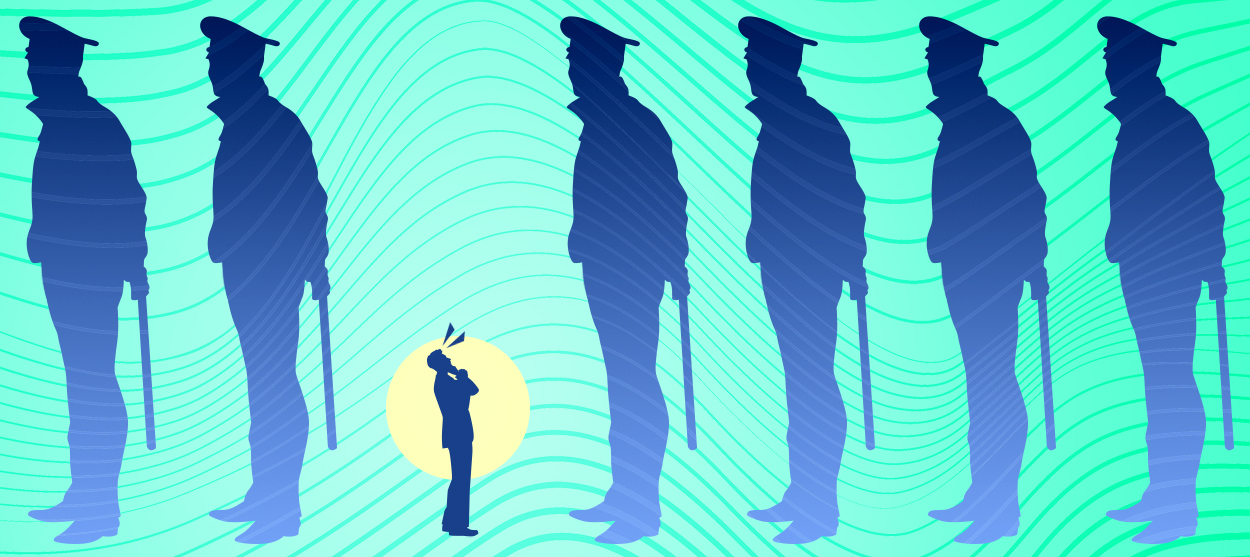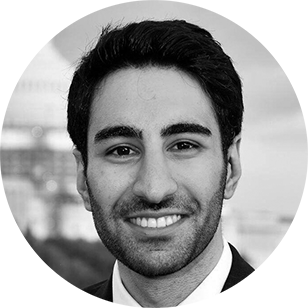The case for fewer laws
Many Americans regard America as "a nation of laws." But, more and more, the United States is becoming a nation of too many laws.


A free daily email with the biggest news stories of the day – and the best features from TheWeek.com
You are now subscribed
Your newsletter sign-up was successful
Many Americans regard America as "a nation of laws." But, more and more, the United States is becoming a nation of too many laws. Like all laws, some are good, and some are bad. But, as a whole, they are increasingly interfering with the lives of Americans — sometimes in deadly ways.
It reminds me of Iran. When I was still living there, I once stopped at a red light on an empty street. "Why are you stopping?" my friends mockingly asked. It was midnight and there were no cars or people around. This had happened countless times and would happen many more.
For me, there was a simple explanation: It was a law, and it was a good law, so it should be obeyed. My friends had a more practical view: If a law doesn't harm anybody to break it, and if you don't get caught, then why not break it?
The Week
Escape your echo chamber. Get the facts behind the news, plus analysis from multiple perspectives.

Sign up for The Week's Free Newsletters
From our morning news briefing to a weekly Good News Newsletter, get the best of The Week delivered directly to your inbox.
From our morning news briefing to a weekly Good News Newsletter, get the best of The Week delivered directly to your inbox.
There are too many laws in Iran that are absurd by the standard of everyday life: A ban on drinking; a ban on dating before marriage; a ban on any physical interaction between opposite sexes, including handshakes; compulsory hijab; a ban on non-state TV networks; a ban on eating and drinking during Ramadan; persecution for political speech and blasphemy; etc. Worse, people have no power to change such laws. As a result, there is no respect for the law.
The Twitter account A Crime A Day does a great job in outlining purposeless federal laws here in the United States, many of which are unknown to virtually all Americans. Here are some examples:
- 21 USC §§331, 333, 343, 21 CFR §139.150(d) & §139.160(d) make it a federal crime to sell vegetable egg spaghetti that's less than .06 inches in diameter.
- 15 USC §§2614, 2615(b)(1), 40 CFR §§721.11233(b)(1) & 721.125(a) make it a federal crime to make cashew nut shell liquid without keeping records of how much cashew nut shell liquid you've made.
- 21 USC §461 & 9 CFR §381.171(d) make it a crime to sell "Turkey Ham" as "Ham Turkey" or with the words "Turkey" and "Ham" in different fonts.
- 18 USC §1865 & 36 CFR §7.96(b)(3) make it a federal crime to harass a golfer in any national park in Washington, D.C.
- 18 U.S.C. §1865 & 36 C.F.R. §2.15(a)(4) make it a federal crime to let your pet make a noise that scares the wildlife in a national park.
Civil liberties lawyer Harvey Silverglate has done a great job in outlining this problem in his book, Three Felonies A Day. The title reflects his estimate that every day the average American commits three felonies, based on laws "written before the dawn of the Internet, often amended, not always clear, and frequently lagging behind the whipcrack speed of technological change." This led to a Massachusetts man’s being charged for breaking wiretap laws just because he was doing his job as an internet service provider.
Things are even worse on the state level. In New Jersey, there's a ban on pumping one's own gas. In California, you need a license to shampoo hair at a hair salon. In Louisiana, florists need a license to sell flowers. Kids can't even open a lemonade stand without a permit in most states. Examples abound.
A free daily email with the biggest news stories of the day – and the best features from TheWeek.com
If you are a business owner, especially a startup, things get even worse. There are all kinds of workplace, environmental, union, and employee-related regulations that one can easily lose count of and get sued for. These rules work as subsidies for established and large businesses who have the means to hire attorneys to go around them, and they push small and startup firms out of business.
Why are there so many laws? Because Americans are increasingly trying to fix the ills of our society through rulemaking. Unfortunately, rulemaking often just breaks society further. Again, in Iran, where law is what is virtuous in Islam, people are rejecting both law and Islam. Indeed, they drink and eat during Ramadan and have sex before marriage, but they also cross red lights, bribe authorities, and cheat in business if they can get away with it.
What Americans forget, as Iranians have forgotten, is that self-policing is a much better option than the police. Self-policing will not protect everybody from harm because there will always be breakers of laws. But policing, while necessary, cannot replace the need for a virtuous citizenry. There is a greater cost for a society overly regulated by the government than one which is regulated by virtue, shame, and communities.
Reducing the numbers of laws is not a silver bullet. Yet, too often, laws intended to prevent harm end up leading to acts of injustice and diminishing the sanctity of law. We can do better.
Shay Khatiri studied Strategic Studies at the Johns Hopkins University School of Advanced International Studies. He's an immigrant from Iran and writes the Substack newsletter The Russia-Iran File.
-
 The problem with diagnosing profound autism
The problem with diagnosing profound autismThe Explainer Experts are reconsidering the idea of autism as a spectrum, which could impact diagnoses and policy making for the condition
-
 What to know before filing your own taxes for the first time
What to know before filing your own taxes for the first timethe explainer Tackle this financial milestone with confidence
-
 The biggest box office flops of the 21st century
The biggest box office flops of the 21st centuryin depth Unnecessary remakes and turgid, expensive CGI-fests highlight this list of these most notorious box-office losers
-
 The billionaires’ wealth tax: a catastrophe for California?
The billionaires’ wealth tax: a catastrophe for California?Talking Point Peter Thiel and Larry Page preparing to change state residency
-
 Bari Weiss’ ‘60 Minutes’ scandal is about more than one report
Bari Weiss’ ‘60 Minutes’ scandal is about more than one reportIN THE SPOTLIGHT By blocking an approved segment on a controversial prison holding US deportees in El Salvador, the editor-in-chief of CBS News has become the main story
-
 Has Zohran Mamdani shown the Democrats how to win again?
Has Zohran Mamdani shown the Democrats how to win again?Today’s Big Question New York City mayoral election touted as victory for left-wing populists but moderate centrist wins elsewhere present more complex path for Democratic Party
-
 Millions turn out for anti-Trump ‘No Kings’ rallies
Millions turn out for anti-Trump ‘No Kings’ ralliesSpeed Read An estimated 7 million people participated, 2 million more than at the first ‘No Kings’ protest in June
-
 Ghislaine Maxwell: angling for a Trump pardon
Ghislaine Maxwell: angling for a Trump pardonTalking Point Convicted sex trafficker's testimony could shed new light on president's links to Jeffrey Epstein
-
 The last words and final moments of 40 presidents
The last words and final moments of 40 presidentsThe Explainer Some are eloquent quotes worthy of the holders of the highest office in the nation, and others... aren't
-
 The JFK files: the truth at last?
The JFK files: the truth at last?In The Spotlight More than 64,000 previously classified documents relating the 1963 assassination of John F. Kennedy have been released by the Trump administration
-
 'Seriously, not literally': how should the world take Donald Trump?
'Seriously, not literally': how should the world take Donald Trump?Today's big question White House rhetoric and reality look likely to become increasingly blurred
